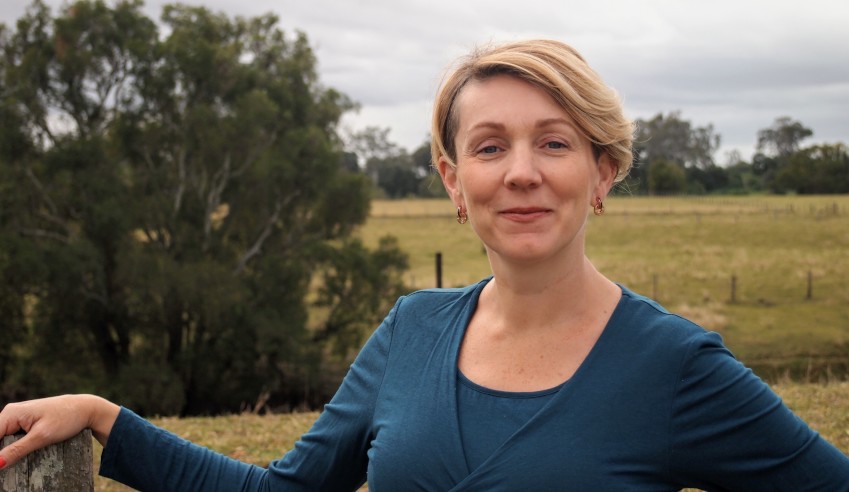After nearly 12 years in-house — including over five years as a GC — Cara Austen knew the time was right for a change of scenery, both physically and professionally.

Ms Austen, in conversation with Lawyers Weekly, reflected that she went to university in a regional town, married a man from a regional town, has family who farm and had always toyed with the idea of practising law in a rural or regional area.
“I had a number of discussions with my managers at Allegis and with their full support I moved, with my family, to Grafton and kept working for Allegis Group. This continued for two years, and — given that the bulk of the team was based overseas — I was managing a remote team wherever I was based.”
More recently, Allegis looked to develop its corporate capability in Hong Kong, Ms Austen continued, and it become clear to her that, for the business to be properly supported, it would need someone who was Hong Kong-based, or at least closer so as to make the travel and communication easier.
“I knew that my family and I were not ready, at this point in time, to relocate to Hong Kong. This created an opportunity for me to ensure that I was able to properly hand over to the new APAC general counsel and then move on to that idea I’d always been toying with: practising law in a rural or regional area.”
The timing has worked out well for Ms Austen, who, following her relocation to Grafton, started developing her own networks within that regional community.
She was particularly drawn, she said, to the food and agriculture businesses, which she noted as being “the backbone of our economy”.
“With a few other like-minded people, I set up a not-for-profit called Clarence Valley Food Inc., and I started to think about the possibility of starting a law firm that could support food and agriculture businesses as there is a real unmet need for reasonably priced, expert legal services for businesses,” she said.
Now operating as the director of Twine Business & Law Pty Ltd, Ms Austen is a “one-person band [doing] everything from marketing and communications, client relationship management, invoicing and expenses, planning and legal work”.
Since starting the boutique, she has learnt how to make decisions quickly and be comfortable that those decisions may sometimes be wrong — something, she feels, might be hard for lawyers who haven’t had the responsibility of being a general counsel.
“I understand financials, budgets and that kind of thing. I get metrics. As a GC, you have to know what you know, know when you know enough and know when you need to call in other experts for support; there is a high degree of discretion and judgement that GCs exercise on a daily basis that isn’t always obvious,” she posited.
“I have also developed a sense for when things are about to go pear-shaped and how to get involved without causing even more drama.”
“And the last thing, which is probably the most important, I learnt that business takes in risk, it’s what it gets paid for. If lawyers just go around telling people what they can’t do and how much trouble they are going to be in, they are going to that kid in the playground no one wants to play with.”
The same applies for boutique life, she surmised: “If you are simply spending your time as the harbinger of doom, clients will run in the opposite direction.”
When asked if in-house lawyers are particularly well placed to transition across to practise in a boutique environment, Ms Austen said it would depend on the lawyer and the type of practice.
“Some would be, and some wouldn’t be. I love the autonomy; I’m not risk-averse and I like collaborating. These traits have worked well for me in-house and continue to work well for me in boutique practice,” she said.
“But if I was the kind of lawyer that loved the safety of being in a big team, working away behind the curtain, then I wouldn’t be recommending they pursue the kind of hands-on, relationship-based practice I’m building. They could, however, thrive in an environment where they get to use their skills to build legal products and then sell those through their website.”
And on the question of whether she would recommend the path she has chosen to others, she again said it will depend on the individual.
“What do you want out of life? There’s no right or wrong answer to this, but you do have to be honest with yourself, there’s no use building someone else’s dream life! I’ve done a lot of self-analysis and I’ve also surrounded myself with other small, boutique and micro-practice owners so that I knew what I was getting myself in for. It’s not easy, but neither were any of my in-house roles and I loved all of those,” Ms Austen concluded.
“If you are thinking about doing it, do it. What’s the worst that can happen? You try it, it doesn’t work, and you go get another in-house job. Seems pretty low-risk to me.”

Jerome Doraisamy is the managing editor of professional services (including Lawyers Weekly, HR Leader, Accountants Daily, and Accounting Times). He is also the author of The Wellness Doctrines book series, an admitted solicitor in New South Wales, and a board director of the Minds Count Foundation.
You can email Jerome at: